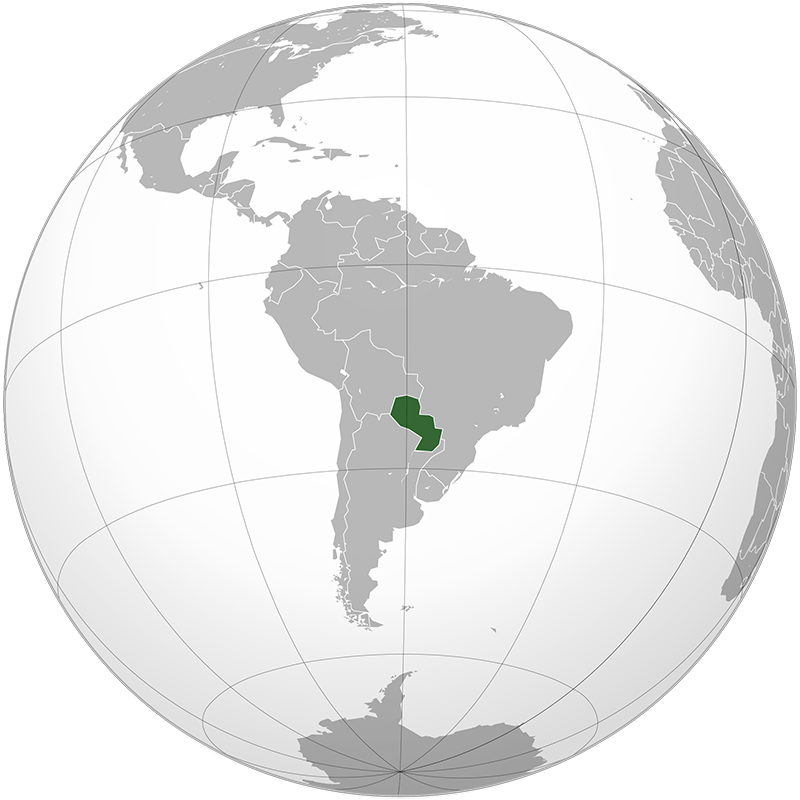
- Population:
- 6,929,000
- Religion:
- Christianity
Paraguay was inhabited by the indigenous Guaraní people before Spanish colonization in the 16th century. It gained independence in 1811 and later suffered a devastating defeat in the Paraguayan War (1864–1870). The country has since experienced political instability but has developed a growing economy based on agriculture and hydroelectric power.
Paraguay, officially the Republic of Paraguay, is a landlocked country in South America, bordered by Argentina to the south and southwest, Brazil to the east and northeast, and Bolivia to the northwest. Covering an area of approximately 406,752 square kilometers, it has a population of about 6.2 million people as of 2024. The capital and largest city is Asunción. The official languages are Spanish and Guarani, reflecting the country's mestizo population, which is a mix of Spanish and indigenous Guarani heritage. Paraguay operates as a unitary presidential republic. The economy is diverse, with significant contributions from agriculture, particularly soybeans and beef, as well as hydroelectric power, with the country being one of the world's largest exporters of electricity. Paraguay is known for its rich cultural heritage, including traditional music and dance, and its extensive river systems, notably the Paraguay and Paraná rivers. The country is a member of international organizations such as the United Nations, the Organization of American States, and the Mercosur trading bloc.






